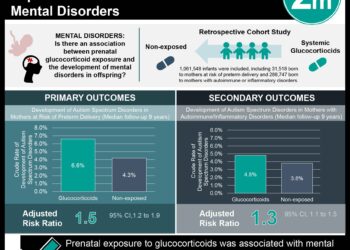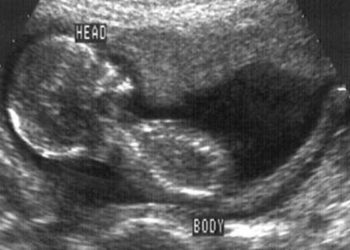Preterm formula powder is not inferior to human milk fortifier as breast milk fortifier
1. When used to fortify human breast milk for preterm neonates, no significant weight gain differences were seen from using either Preterm Formula Powder or Breast Milk Fortifier.
2. A higher prevalence of feed intolerance was reported when breast milk was fortified with human milk fortifier compared to preterm formula powder.
Evidence Rating Level: 1 (Excellent)
Study Rundown: With preterm neonate survival rates increasing in recent years, optimal preterm neonate care has been of increasing concern to prevent post-natal growth restrictions. Human breast milk alone does not meet the nutrient requirements of preterm neonates and requires additional fortification with nutrients. Fortification of breast milk in feed of preterm neonates is especially important in low-income countries with a higher prevalence of calorie and protein deficient mothers. This study was done to compare the results of using Human Milk Fortifier (HMF) to preterm formula powder (PFP), to determine if PFP is comparable to HMF. This randomized control trial consisted of 123 preterm neonates without major congenital abnormalities, under the age of 34 weeks gestation with a birth weight under 1500 g (3.31 pounds). Of the 123 preterm neonates, 60 neonates received breast milk fortified with 1 g of PFP for every 25mL of milk, while the remaining 63 neonates received breast milk fortified with 1 g of HMF for every 25 mL of milk. Neonate characteristic between groups were similar, as PFP neonates had a mean gestation of 30.5 weeks with a mean birth weight of 1161 g (SD= 251 g), while HMF neonates had a mean gestation of 29.9 weeks with a mean birth weight of 1119 g (SD= 265 g). Neonates were assigned randomly to either PFP or HMF groups and discharged from hospital by week 40 of gestation. When comparing short-term weight gain between neonates, PMF was found to be similar to HMF, as HMF fed neonates had a mean daily weight gain of 16.3 g/kg/day (SD = 4g/kg/day) while PFP fed neonates had a mean daily weight gain of 15.7 g/kg/day (SD = 3.9g/kg/day). HMF use also resulted in higher feed intolerance rates, with 22% of neonates requiring withholding of fortification for 24 hours or more, compared to only 5% of PFP fed neonates requiring withholding of fortification for 24 hours or more. Fortification use was reviewed by a nutritional audit to ascertain methodological rigor, a strength in this study’s design. The results of this study are limited however, due to the study’s relatively small sample size, and potentially confounding variables such as different maternal diets.
Click to read the study in JAMA Pediatrics
Click to read an accompanying editorial in JAMA Pediatrics
Relevant Reading: Highly Concentrated Preterm Formula as an Alternative to Powdered Human Milk Fortifier: A Randomized Controlled Trial
In-Depth [Randomized Controlled Trial]: This randomized control trial study was done to determine if preterm formula powder is noninferior to human milk fortifier when fortifying breast milk to increase short-term weight gain of preterm infants. The trial took place from December 2017 to June 2019 in a level-3 neonatal unit in Delhi, India. It consisted of 123 neonates, with 60 participants assigned 1 g of PTF per 25 mL of milk, and 63 neonates assigned 1 g of HMF per 25 mL of milk. Neonates between group were similar in maternal characteristics (hypertension status, preeclampsia, receival of antenatal corticosteroids, and number of mother’s who had multiple pregnancies) and baseline characteristics. Neonates of the PTF group had a mean length of 37.5 cm (SD= 3.8) and a median age of 7 days (5-10 days), while neonates of the HMF group had a mean length of 35.4 cm (SD= 3.5) and a median age of 8 days (4-11 days Neonates fed PTF had a mean weight gain of 15.7 g/kg/day (SD= 3.9 g/kg/day), while neonates fed HMF had a mean weight gain of 16.3 g/kg/day (SD= 4 g/kg/day). These values are lower than reported weight gain using PTF or HMF in higher income countries. Length and head circumference gains were similar between PTF and HMF neonates with mean length gains of 0.83 cm/week (SD= 0.4 cm/week) and 0.86 (SD= 0.4 cm/week), respectively. Head circumference gains were 0.64 cm/week (SD= 0.3 cm/week) and 0.69 cm/week (0.4 cm/week) for PTF and HMF neonates respectively. A significant difference occurred when comparing feed intolerance rates, as 22% of neonates fed HMF required withholding fortification for 24 hours or more, compared to only 5% of neonates fed PTF. The difference between the two were suggested to be due to HMF increasing the osmolality of breast milk (464 mOsm/kg vs 357 mOsm/kg). These findings however, were expected as previous studies report feeding intolerance rates from 10%-30% when using HMF. There was no significant difference in mortality between groups.
Image: PD
©2021 2 Minute Medicine, Inc. All rights reserved. No works may be reproduced without expressed written consent from 2 Minute Medicine, Inc. Inquire about licensing here. No article should be construed as medical advice and is not intended as such by the authors or by 2 Minute Medicine, Inc.







